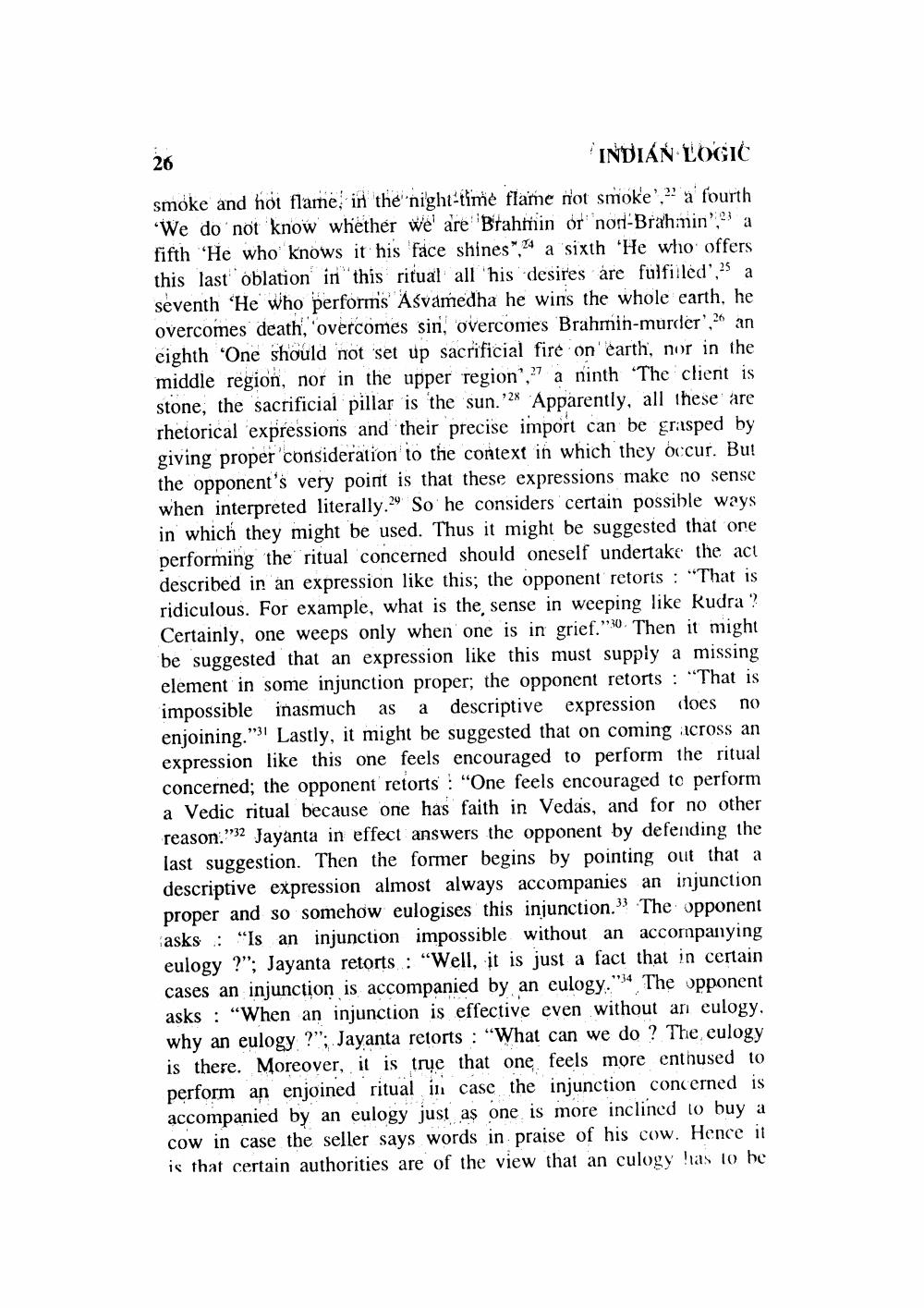________________
26
INDIAN LOGIC
a
128
smoke and hot flame, in the night time flame not smoke," a fourth "We do not know whether we are Brahmin or non-Brahmina fifth 'He who knows it his face shines", a sixth "He who offers this last oblation in this ritual all his desires are fulfilled', seventh He who performs Asvamedha he wins the whole earth, he overcomes death, overcomes sin, overcomes Brahmin-murder',26 an eighth 'One should not set up sacrificial fire on earth, nor in the middle region, nor in the upper region'," a ninth The client is stone, the sacrificial pillar is the sun. Apparently, all these are rhetorical expressions and their precise import can be grasped by giving proper consideration to the context in which they occur. But the opponent's very point is that these expressions make no sense. when interpreted literally." So he considers certain possible ways in which they might be used. Thus it might be suggested that one performing the ritual concerned should oneself undertake the act described in an expression like this; the opponent retorts: "That is ridiculous. For example, what is the, sense in weeping like Kudra? Certainly, one weeps only when one is in grief." Then it might be suggested that an expression like this must supply a missing. element in some injunction proper, the opponent retorts: "That is impossible inasmuch as a descriptive expression does no enjoining." Lastly, it might be suggested that on coming across an expression like this one feels encouraged to perform the ritual concerned; the opponent retorts: "One feels encouraged to perform a Vedic ritual because one has faith in Vedas, and for no other. reason." Jayanta in effect answers the opponent by defending the last suggestion. Then the former begins by pointing out that a descriptive expression almost always accompanies an injunction proper and so somehow eulogises this injunction." The opponent asks "Is an injunction impossible without an accompanying eulogy?"; Jayanta retorts: "Well, it is just a fact that in certain cases an injunction is accompanied by an eulogy," The opponent asks "When an injunction is effective even without an eulogy. why an eulogy?"; Jayanta retorts: "What can we do? The eulogy is there. Moreover, it is true that one feels more enthused to perform an enjoined ritual in case the injunction concerned is accompanied by an eulogy just as one is more inclined to buy a cow in case the seller says words in praise of his cow. Hence it is that certain authorities are of the view that an culogy has to be




